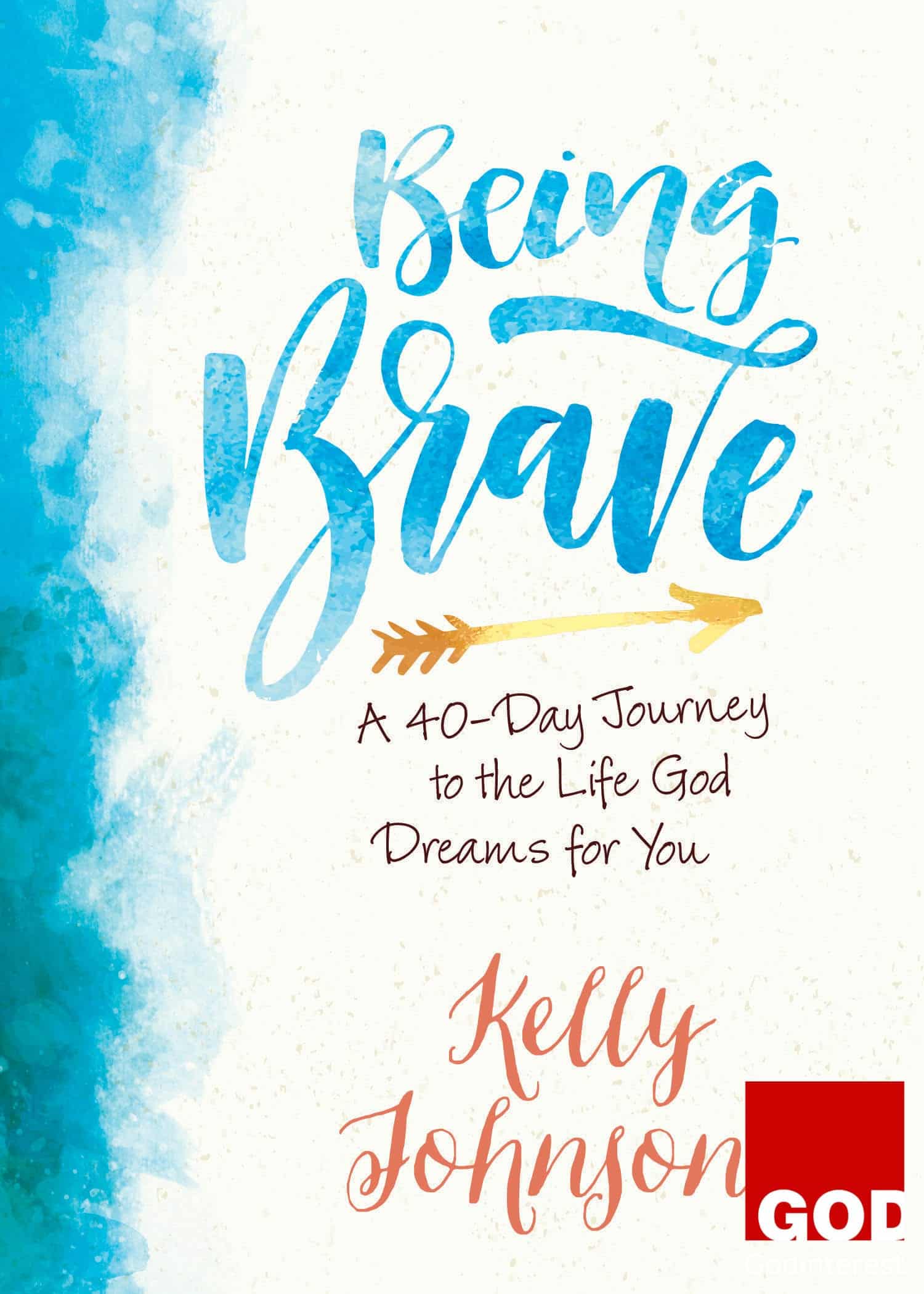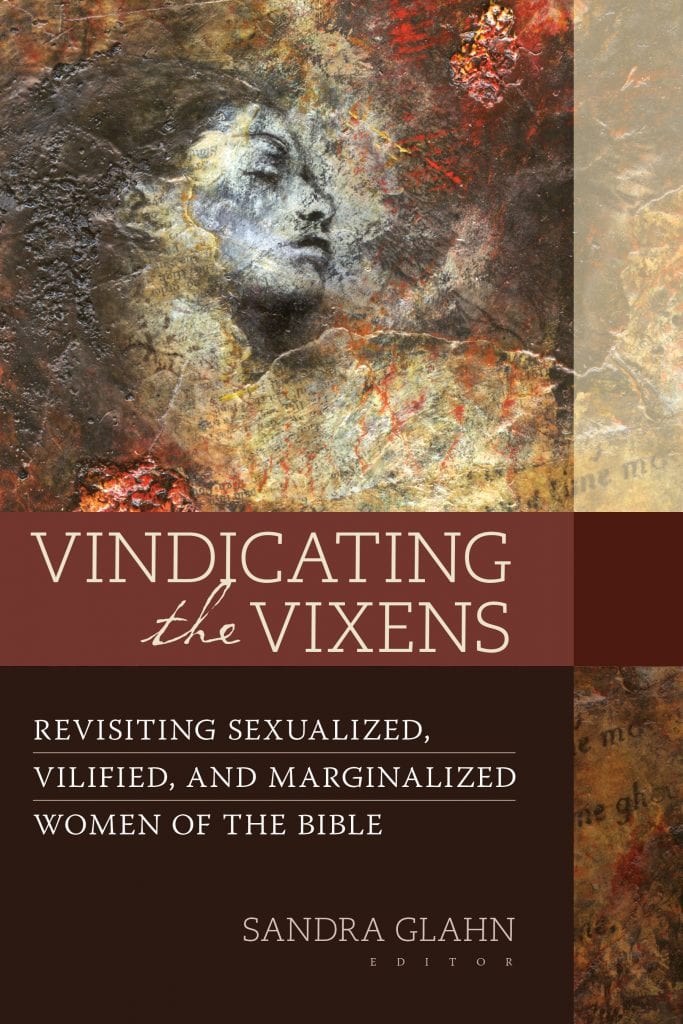Part 1 of an interview with Kelly Johnson,Author of Being Brave: A 40-Day Journey to the Life God Dreams for You
The world can be a scary place, and the fear it produces can spiral us into a sort of paralysis that keeps us from speaking truth, living boldly, and encouraging others. To spur us back into action, life coach Kelly Johnson has written a devotional, Being Brave: A 40-Day Journey to the Life God Dreams for You (Abingdon Press), to help fan the flame of bravery that lies in wait within everyone.
Q: How did your daughter first start you on the journey to study about being brave, and what role did she play in encouraging you to write this book?
When my youngest daughter was nine years old, she was having a particularly tough day. She had worn me out with her growing list of worries, complaints, aches, pains, and fears, and I told her I didn’t know what else I could do for her. I had depleted my reservoir of mommy tricks in my efforts to help her get to the other side of her increasing angst and finally said to her, “Brooke, I don’t know how to help you.” She looked up at me with tears in her eyes and said, “Mommy, I just need you to tell me that I’m a brave soldier.” Her response to me that day began our family’s journey with the power of naming one another brave.
When Brooke left for college a few years ago, she wrote me a letter inviting me to step out and be brave in this new season of my life. Through my curiosity around the word brave, I started writing, reading, and wondering about what being brave meant for women like me who wanted to live lives of meaning and purpose but were sometimes scared to step out of their comfort zones. In October 2015, I offered my first Being Brave retreat where we explored God’s vision for our life, the barriers to fully embracing that braver life, and the part our connection to one another played in hearing God’s voice more clearly. This book was originally created as a resource and follow-up for my retreat attendees to go more deeply into the concepts we covered at the retreat.
Q: How is being brave tied into our faith and identity as Christians? Why is it powerful to be called brave?
The most often repeated command in scripture is “do not fear.” God knew we would need encouragement to help us deal with our tendency to be sidetracked by our fears, so we find hundreds of scriptures about fear and courage in the Bible. Every exhortation to set aside our fear includes a reminder of God’s presence. Because of God’s presence, we can defeat the power of fear in our life and live in the fullness of who God made us to be. Because of God, we are brave. The theme verse for our journey is found in 2 Timothy 1:7:
For God has not given us a spirit of fear and timidity,but a spirit of power, love, and self-discipline.
Remembering we are brave reminds us of our identity as children of God and sets us free to do the next right thing with confidence. Naming one another BRAVE, calling out the brave soldier in each other, is a powerful way of speaking out loud the following message of solidarity and inspiration: “I see your struggle. I see your brave, hard work. I believe in you, and I’m here if you need help.” When we are reminded of our inherent, God-given courage, we can turn down the volume on the voice of our inner critic and turn up the volume on God’s voice. Remembering we are brave helps us tap into the part of ourselves that is creative and resourceful.
Q: You describe part of being brave as being bold, confident, and resilient. What encouragement do you have for the woman who doesn’t feel like she is any of those things?
My experience both personally and in my interactions with friends and clients tells me many of us would have trouble describing ourselves with those words most of the time. While we might be willing to acknowledge confidence, boldness, or resilience in ourselves in some areas, many of us are much quicker to see those qualities in others. We tend to compare our insides with other people’s outsides and reach the conclusion that others possess something we just don’t have. I would encourage the woman who struggles to identify those qualities in herself to ask a trusted friend or family member for help in the discovery process. We are always more connected to our courage in the context of community. Find the people who encourage you to step out and exercise your confidence muscles and offer them the gift of encouragement in return.
I would also encourage her to determine what she thinks being bold, confident, and resilient looks like and act that way until she begins to feel that way. One of my favorite quotes about being brave is from Aristotle. He says, “We become brave by doing brave acts.” I believe scripture tells us that God created us to be brave, bold, confident, and resilient. Until we remember what that feels like, we need to encourage one another and practice doing brave things. Do one thing that scares you every day, no matter how small, and catch your friends being brave.
Q: Who was Being Brave written for?
The Being Brave journey is for women who feel stuck and want to get un-stuck. This book is for the woman who dreams of a life of deeper purpose and passion, even though she isn’t sure she has anything significant to contribute. This book is for the woman who feels lonely, even though she has 750 friends on Facebook, and for the woman who loves Jesus, even though she doesn’t always feel like she fits in at church. This book is for the woman longing for deeper connection to God and to other women like her. This book is for the woman who needs someone to tell her she is brave, her story matters, and the party won’t be complete without her.
Q: Tell us a little bit about the format of Being Brave. How did you intend for the book to be used?
The book is formatted as a forty-day devotional journey. Using our theme scripture from 2 Timothy and an acronym of the word BRAVE, we explore six facets of being brave. On this journey, being brave includes being Bold, Resilient, Authentic, Vulnerable, Engaged, and Empowered by the Spirit. Each day explores one of the six facets of bravery with two scripture verses, an illustration, three thought-provoking questions, and a prayer. Along the way, we take inspiration from Jesus and His brave followers during the final weeks of His ministry, in addition to examples of courage from my own community.
My prayer is that readers will find an accessible guide to thinking about being brave in a new way and be willing to consider the idea that our Creator is willing and able to accompany us on the journey. I hope Being Brave is a book that both seasoned devotional enthusiasts and those who have never used a daily devotional before will find meaningful. In less than thirty minutes, most readers will be able to explore the daily offering and consider ways to incorporate the various facets of bravery into their day.





